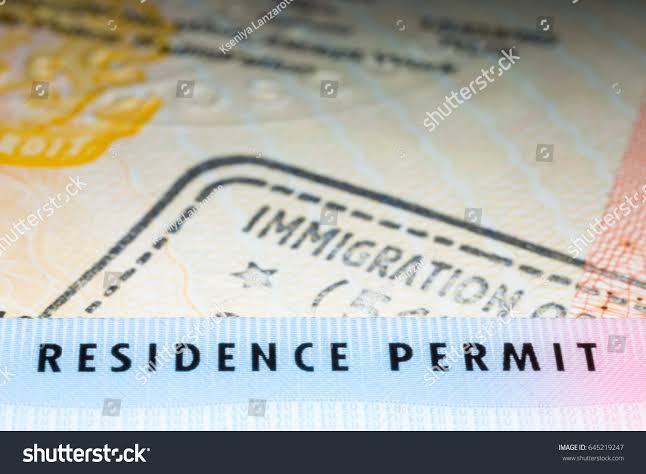By Mahlet Mesganaw, partner at DMLF
Email: mahlet@dmethiolawyers.com
Introduction
Visas are one way of attracting tourism and foreign direct investment into a country. The ease of obtaining visas through online application has been a positive shift. This will have an impact in ease of doing business for investors. However, to witness investors flock into the country, it requires continuous engagement in making visas more attractive. Thus in this article we shall see the visas from the investment side, the industrial park side and the immigration regulations side. A brief conclusion shall end the article.
Investment
The Ethiopian Investment Commission(EIC) or a delegated investment organ is assigned by the Investment Proclamation No 1180/2020 to facilitate the processing of visa applications of foreigners coming into Ethiopia for investment purposes. Not only the investors themselves but also that of the families of the investors (spouses, children and parents) shall receive similar treatment.
An owner or shareholder of an investment undertaken pursuant to the Investment Proclamation, may be issued a five-year multiple visa. There is one condition involved i.e. the EIC has to provide a confirmation.
In addition to the owner or shareholders of an investment enterprise, the General Manager, Board Member and top Management of an Enterprise and when it is a branch office, the top management of the parent or holding company of the enterprise shall be issued a three year multiple entry visa. Similarly the EIC confirmation is a prerequisite.
No single stay of any foreigner entering Ethiopia using multiple entry visas issued as mentioned above cannot exceed ninety (90) days.
The EIC shall work in cooperation with the Immigration, Nationality and Vital Events Agency and other appropriate government bodies for the proper implementation of these visas for investment.
Investors in the Industrial Parks
Industrial Park Regulation No 417/2017 incorporates favorable visa terms for investors in industrial parks. There are multiple entry visas or residence permits valid for up to five years. These visas are issued for owners or shareholders of an industrial park developer or enterprise. For industrial park service providers, managers, board members and senior experts employed by foreign investors, up to three years long visas are made available. An assurance from EIC is a prerequisite to issue these visas for five or three years.
Immigration Regulation
The Immigration Regulation No 114/2004 incorporates different types of visas. These include diplomatic, service, business, immigrant, tourist, transit, and student visas. The writer will look at each of the visa types in brief.
Diplomatic visas are issued for ambassadors, diplomatic agents, attaches and consular representatives who are assigned in foreign embassies, permanent missions and consular posts in Ethiopia and to their spouses. This visa also extends to officials, having diplomatic status, of international and regional organizations having their seats in Ethiopia, and to their spouses. Also foreigners holding diplomatic passports and coming to or transiting through Ethiopia for government business shall be granted diplomatic visas.
The precondition to acquiring a Diplomatic visa is when a diplomatic note from the department of foreign affairs, embassy or consular posts of the requesting state or from the concerned international or regional organization has been presented.
The second type of visa is a service visa. Service visas are issued for permanent employees of foreign embassies, permanent missions and consular posts in Ethiopia who are holding service passports and to members of their families. In addition to these employees, international civil servants assigned in international or regional organizations having their seats in Ethiopia and to members of their families will acquire the service visa. Last but not least, foreigners holding service passports and coming to or transiting through Ethiopia for government business and the family members of persons issued with diplomatic visas are granted service visas. Similarly Service Visas shall be issued only where a diplomatic note from the department of foreign affairs, embassy or consular post of the requesting state or from the concerned international or regional organization has been presented.
Thirdly, Business visas will be issued to foreigners who are coming to Ethiopia for investment activities and to expats coming for employment in any activity. Business visas are also issued for personnels coming for various activities to be carried out in accordance with an agreement entered into with a foreign government, an international or regional organization or non-governmental organization. Similarly a business visa is issued for humanitarian service personnels wishing to engage in services without remuneration and for people participating in symposia, exhibitions, workshops and similar activities to be held in Ethiopia or for training. Last but not least, business visas are issued for foreigners coming for study,research and for mass media activities.
Business visas could be issued for single or multiple entry.
The Ethiopian Immigration and Citizenship Service renders online Business visa service. There are 9 different categories of visas within Business Visa. These include Journalist Visa-JV, International organizations (Embassies work visa)-RI, Investment Visa-IV, Government Insitutions Short Task Visa-GIV, NGO work visa-NV, Conference Visa-CV, Ethiopian Government Employment Visa-GV, Foreign Business Firm Employment Visa-WV and Ethiopian Private Business Firm Work Visa-PE.
The fourth type of visa is Immigrant Visa. Immigrant visas will be issued to the following for foreigners who have been adopted by Ethioians or who have valid marriages with Ethiopians and are coming to reside in Ethiopia, and to members of their families. More so family members of foreigners holding permanent resident permits in Ethiopia or for foreigners coming to reside in Ethiopia without either being engaged in any gainful activities or becoming public burden, and to members of their families, immigrant visas could be issued.
Tourist visa is the fifth type of visa. Tourist visas can be obtained online. Tourist visas shall be issued to foreigners who are coming to visit Ethiopia. A tourist visa may be issued for single or multiple entry. Any foreigner who has entered Ethiopia by a tourist visa may not be allowed to work in Ethiopia.
Tourist Visas are required for all foreign visitors to Ethiopia, with the exception of few neighboring nationals. In addition to online visa service, one can get tourist visas upon arrival. Nationals of 33 countries are now allowed to receive their tourist visas on arrival in Ethiopia. The list includes Argentina, Australia, Belgium, Brazil, Canada, China, Denmark, Finland, France, Germany, Greece, Ireland, Israel, Italy, Japan, Republic of Korea, Kuwait, Luxembourg, Mexico, the Netherlands, New Zealand, Norway, Poland, Portugal, Russian Federation, South Africa, Spain, Sweden, Switzerland, Taiwan, United Kingdom and United States.
In sixth place is Transit Visas. Transit visas are issued to a foreigner who is traveling to another country across Ethiopia. A transit visa may be issued for either single or double transit.
Finally in seventh place one can find student visas. Student visas will be issued to a foreigner who is coming to Ethiopia for education or training. Prior to the issuance of a student visa, the applicant will be required to produce evidence showing her admission to an educational or training institution in Ethiopia and the financial means to cover her educational and accommodation expenses.
Validity periods of diplomatic and service visas will be determined in accordance with directives to be issued by the Ministry of Foreign Affairs of Ethiopia. However
validity periods of other visas are determined in accordance with directives to be issued by the Ethiopian Immigration and Citizenship Services.
Conclusion
The Ethiopian visas need to aim in line with the laws of attracting investment and tourism into the country. Any hurdles, being bureaucratic or untimely validity periods, need to be revised. Long and attractive visas aimed at investors worth a certain amount need to be introduced. Ethiopian Visas have to be vibrant and proactive with the economic development of the country. Ethiopia visas should not be eyed as difficult to obtain or renew. Bureaucratic hurdles and criminal vindictive handling in customer service requires rethinking.
For all your Ethiopian visa inquiries you may contact us at info@dmethiolawyers.com






